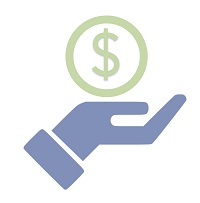Caregiver Tax Tips

Get Organized from the Get-Go
Every taxpayer should develop a personal organizational system to manage the important financial forms and receipts they receive throughout the year. There’s no one-size-fits-all- approach to organization, and each person’s system will be unique.
As a caregiver, you may also need to assume responsibility for organizing your loved one’s financial documents. Important items to keep track of include:
-
Annual bank statements
-
1099s
-
Payroll stubs
-
Dividend distribution and gain & loss statements
-
Donation receipts
-
Closing statements from real estate transactions
-
Receipts from any taxes paid throughout the year (estimated or quarterly)
-
Receipts from any medical expenses that may be tax deductible
Stay on Top of Relevant Tax Information and Changes
The United States Tax Code is tens of thousands of pages long and contains an astronomical amount of information—too much for even the savviest tax professional to know, let alone the average taxpayer. That’s why it’s especially important to read up on all of the possible tax implications of looking after an elderly loved one. You may have a handle on your own finances, but the world of elder care has its own set of rules and conditions. Understanding these distinctions can help you take advantage of certain opportunities to decrease your tax bill and prevent you from making costly mistakes.
Determine if a Loved One Can Be Claimed as a Dependent
Claiming a loved one as a dependent can entitle the taxpayer to deduct additional expenses from their taxable income and take advantage of the Child and Dependent Care Credit.